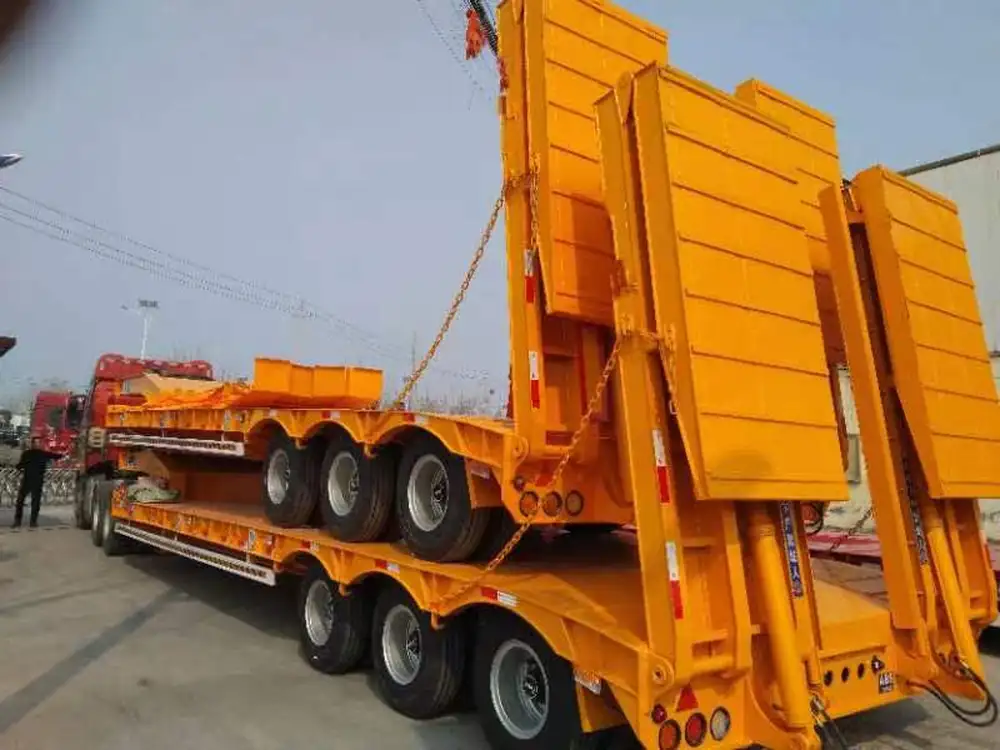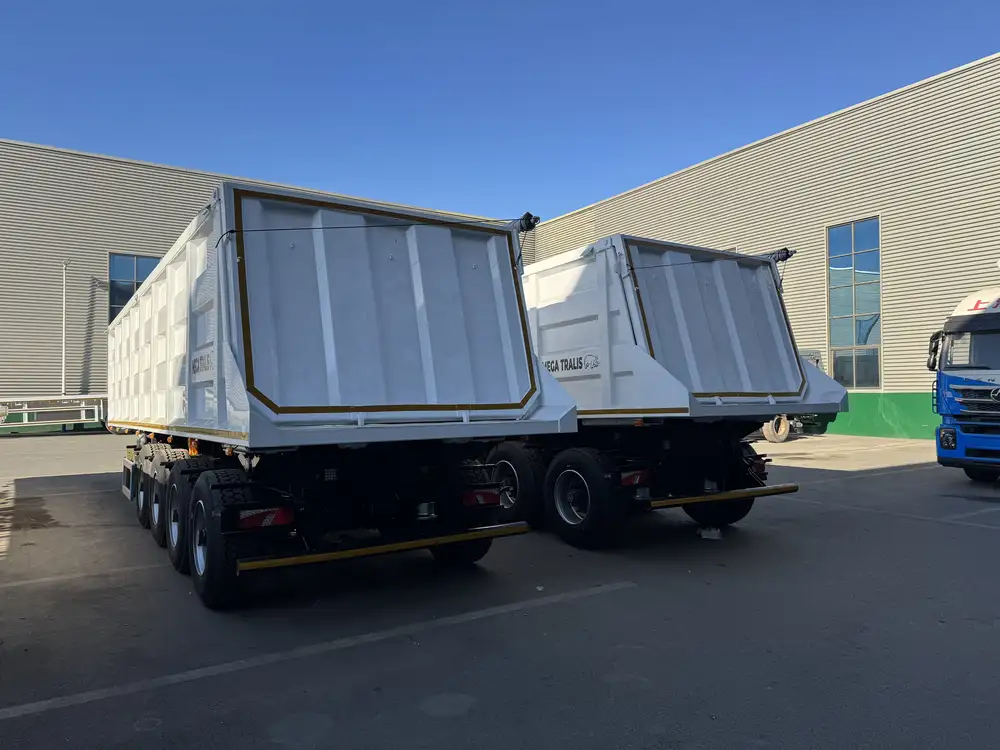When it comes to the world of semi-trailers, understanding the various specifications is crucial for effective buying and usage decisions. Among these specifications, a key aspect that often raises questions is the weight of dump trailers. This article will delve into the realities of dump trailer weight, including its influencing factors, variations among types, capabilities, and implications for users.
What Is a Dump Trailer?
Before exploring the weight specifics, let’s define what a dump trailer is. A dump trailer is a specialized type of trailer that allows for the effortless dumping of loads via a hydraulic lift mechanism. This feature makes them invaluable in construction, landscaping, and agricultural industries—any field where material transport is essential.
The Weight of Dump Trailers: Key Factors

1. Materials Used in Construction
Dump trailers are primarily constructed from either steel or aluminum. Each material has distinct properties:
| Material | Weight (average per square foot) | Pros | Cons |
|---|---|---|---|
| Steel | 1.2 lbs | Strength and durability | Heavier, prone to corrosion |
| Aluminum | 0.6 lbs | Lightweight, corrosion-resistant | Less structurally robust than steel |
The choice of material significantly impacts the overall weight of the trailer, which in turn affects the load capacity and the maneuverability of the vehicle.
2. Size and Design of the Trailer
Dump trailers come in various sizes, typically ranging from 5 to 20 feet in length. The design is essential as well; for instance, single-axle trailers usually weigh less than tandem-axle trailers due to the distribution of weight being more significant in dual-axle systems. Here’s a breakdown of common dimensions:
| Length (feet) | Weight (Average) | Typical Uses |
|---|---|---|
| 5 | 1,500 – 3,000 lbs | Small residential projects |
| 10 | 3,000 – 5,000 lbs | Medium construction jobs |
| 20 | 7,000 – 10,000 lbs | Large commercial applications |
3. Load Capacity
Each dump trailer has a specified load capacity dictated by its Gross Vehicle Weight Rating (GVWR) and its curb weight. When calculating total load, consider:
- Curb weight: The weight of the trailer without any load.
- Payload: The weight allowance for cargo.
- GVWR: The maximum weight limit, including trailer weight and payload.
For example, a dump trailer with a curb weight of 3,000 lbs and a GVWR of 10,000 lbs can carry a payload of 7,000 lbs safely.

How Much Does a Dump Trailer Weight?
Based on the factors detailed above, a standard dump trailer’s weight can vary significantly. Here are ranges based on various sizes:
| Trailer Size | Weight Range |
|---|---|
| Small (5-7 ft) | 1,500 – 3,500 lbs |
| Medium (8-12 ft) | 3,500 – 5,500 lbs |
| Large (14-20 ft) | 5,500 – 10,000 lbs |
These weights represent the empty trailers. Remember that the total operational weight will include cargo.
Variants of Dump Trailers and Their Weights
Understanding the type of dump trailer can help narrow down more precise weight expectations:
1. Single Axle Dump Trailers
Single axle trailers weigh between 1,500 to 2,500 lbs, making them ideal for small loads such as residential landscaping or light construction materials.

2. Tandem Axle Dump Trailers
Tandem axles provide increased stability and load capacity, weighing between 3,500 to 7,000 lbs, suitable for commercial operations involving heavier loads.
3. Gooseneck Dump Trailers
Gooseneck designs, which are often larger, can weigh more, typically ranging from 5,000 lbs for smaller designs to over 10,000 lbs for larger, multi-axle options.
Implications of Weight on Performance and Safety

Maneuverability and Performance
- Heavier trailers may require more robust towing vehicles, which can lead to increased fuel consumption and maintenance costs.
- A trailer’s weight distribution affects its handling and stability, especially during turns and when under load.
Legal Considerations
Be aware of local regulations concerning weight limits on highways and roadways. Overloading a dump trailer can not only lead to legal repercussions but also pose safety hazards.
Cost-Efficiency Analysis
Choosing the right weight trailer can lead to significant financial savings. A lighter trailer may reduce fuel consumption. However, balancing the weight and durability for a specific job type is vital to avoid potential costs associated with damage or the need for more frequent repairs.

Frequently Asked Questions (FAQs)
1. How do I calculate the total weight of my dump trailer when loaded?
To calculate the loaded weight, sum the trailer’s curb weight and the weight of the load you are carrying. For instance, if a tandem trailer weighs 5,500 lbs and you load it with 5,000 lbs of materials, the total weight would be 10,500 lbs.
2. What is the maximum weight I should haul with my dump trailer?
Always refer to the manufacturer’s guidelines for the Gross Vehicle Weight Rating (GVWR), which outlines the maximum safe towing weight.

3. How does the weight of my dump trailer affect my truck’s performance?
A heavier dump trailer requires a stronger towing vehicle. Ensure your vehicle can handle the combined weight to avoid strain on the engine and drivetrain.
4. Can I modify my dump trailer to increase its weight capacity?
Modifications can be made, but they should be discussed with a qualified professional to ensure safety and legality in regard to local regulations.
Conclusion
In the realm of dump trailers, understanding weight specifications is not just a matter of curiosity; it’s a critical aspect of effective trailer utilization. Knowledge about the various weight factors—material types, axle configuration, and intended load capacity—is essential for making informed decisions that affect both performance and safety.
Choosing the correct dump trailer involves weighing the pros and cons of each option against your unique needs and operational parameters. And as industries evolve, so too will the technologies surrounding dump trailers, continuously elevating the standards of performance, efficiency, and safety.
By maintaining an awareness of these factors, you can ensure that your operation runs smoothly and meets the demands of your projects effectively. With proper care and usage of your dump trailer, you can optimize its performance and longevity, reaping the long-term benefits of this indispensable tool in your fleet.



